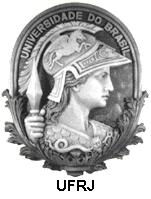- Professor:
- Raimundo Rocha dos Santos
- Sala 330 Prédio Próprio do IF/UFRJ
- rrds at if.ufrj.br
- http://sites.if.ufrj.br/rrds/en/
- Language:
If we have overseas students uncomfortable with Portuguese, lectures will be conducted in English. However, students are free to ask questions in either English, Portuguese, or Spanish during lectures. Questions posed in problem sets and exams will be in English; similarly, solutions in exams may be worked out in English, Portuguese, or Spanish.
- Class hours:
Mondays and Wednesdays, from 10:00 to 12:00, in room A-337; extra classes (e.g. to keep up with the schedule) on Fridays from 10 to 12h.
- Office hours:
Every day, typically from 9 to 19h. However, you are strongly advised to check beforehand (either by e-mail or Whatsapp) whether or not I’ll be available at the desired time.
- Topics (not necessarily in this order):
Elements of Ensemble Theory; Equilibrium ensembles and Thermodynamics; Ideal systems in Maxwell-Boltzmann statistics; Ideal systems in Bose and Fermi statistics; Applications to quantum systems; Approximation methods; Phase transitions; Introduction to non-equilibrium Statistical Mechanics.
- Problem sets:
Weekly problem sets, downloadable from here. They don’t need to be handed in, but live discussions with me are most welcome.
- Passing grade:
There will be three exams throughout the semester, P1, P2 and P3, and a final exam, P4, which will add up according to the rules below; exam dates appear in the course schedule.
With the first three exams one calculates a partial average, M = (P1 + P2 + P3) / 3:
- If all Pi (i=1, 2 ou 3) are greater or equal to 6 => Pass with grade M;
- If only one Pi is smaller than 6, but M greater or equal to 7 => Pass with grade M;
- In all other cases must take P4, which, if greater or equal to 3, necessarily replaces the smallest Pi, to yield a new average, M’:
– If M’ greater or equal to 6 => Pass with grade M’
– If M’ < 6 => Fail with grade M’
- If P4 < 3, final grade is given by MF=(M+3 x P4)/4.
- If the student misses P4, a grade 0 will be attributed in evaluating MF.
- Text-books:
- K Huang, Statistical Mechanics (Wiley, N.Y.) – H
- RK Pathria, Statistical Mechanics (Pergamon, Oxford) – P
- RK Pathria and PD Beale, Statistical Mechanics (3rd Edition, Elsevier, Amsterdam, 2011) – PB3
- LE Reichl, A Modern Course in Statistical Physics (U of Texas, Austin) – R
- HE Stanley, Introduction to Phase Transitions and Critical Phenomena (Oxford, Oxford) – S)
- K Huang, Statistical Mechanics (Wiley, N.Y.) – H
- Additional bibliography:
- R Balescu, Equilibrium and Non-equilibrium Statistical Mechanics, (Wiley Interscience, N.Y.) – B
- R R dos Santos, Notas de Aula - dS [2022/2 version available; updates will be made available during term]
- M Kardar, Statistical Physics of Particles (2007; Cambridge, Cambridge) – KP
- M Kardar, Statistical Physics of Fields (2007; Cambridge, Cambridge) – KF
- SE Koonin, Computational Physics (Addison Wesley, N.Y.) - Ko
- R Kubo, Statistical Mechanics (North Holland, Amsterdam) – K
- LD Landau e E M Lifshitz, Statistical Physics (Pergamon, Oxford) – L
- M Plischke e B Bergersen, Equilibrium Statistical Physics (Prentice Hall, Englewood Cliffs) – PB
- F Reif, Fundamentals of Statistical and Thermal Physics (McGraw-Hill, N.Y.) - Rf
- SRA Salinas, Introdução à Física Estatística (EdUSP, São Paulo) – Sa


